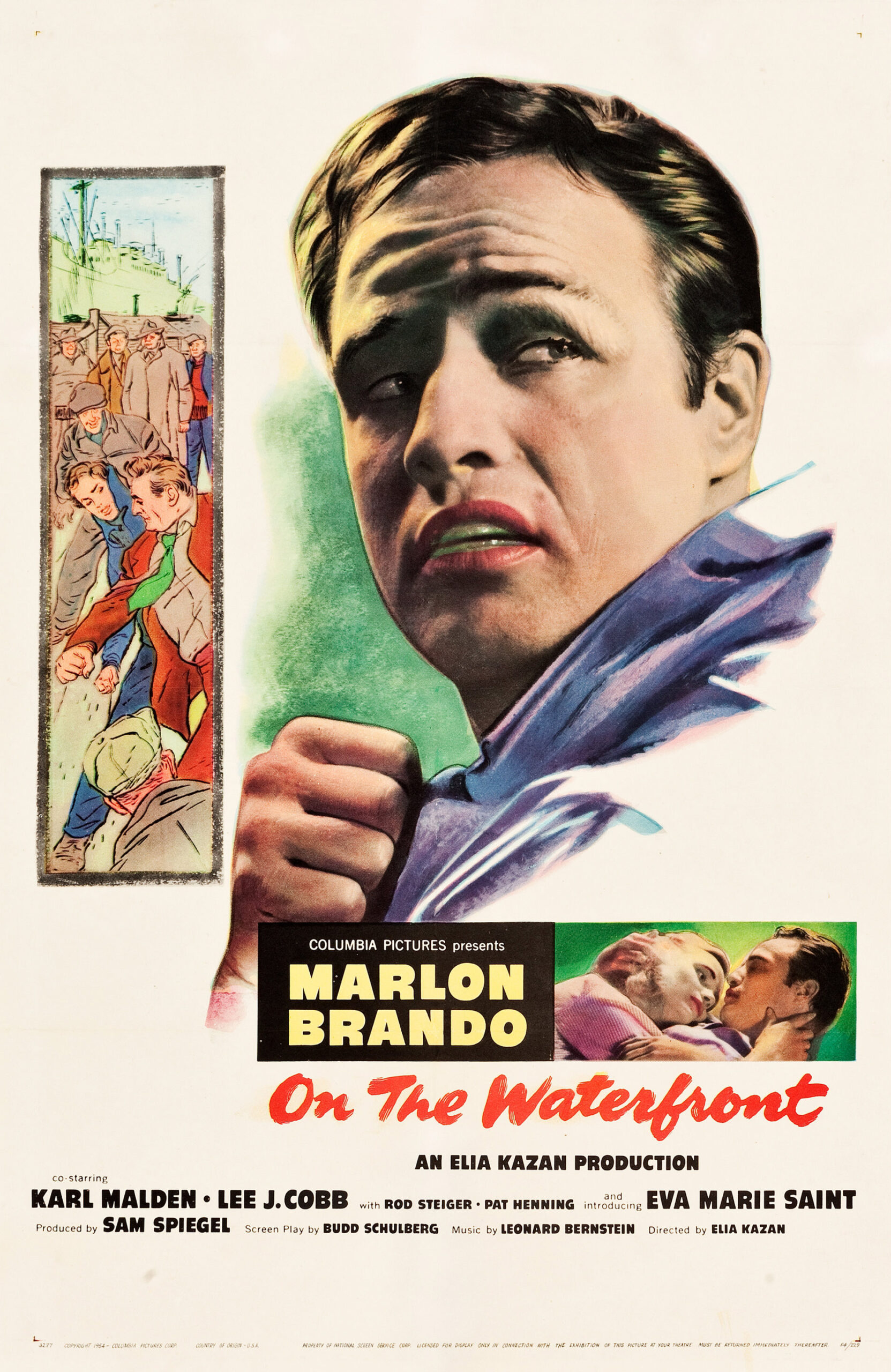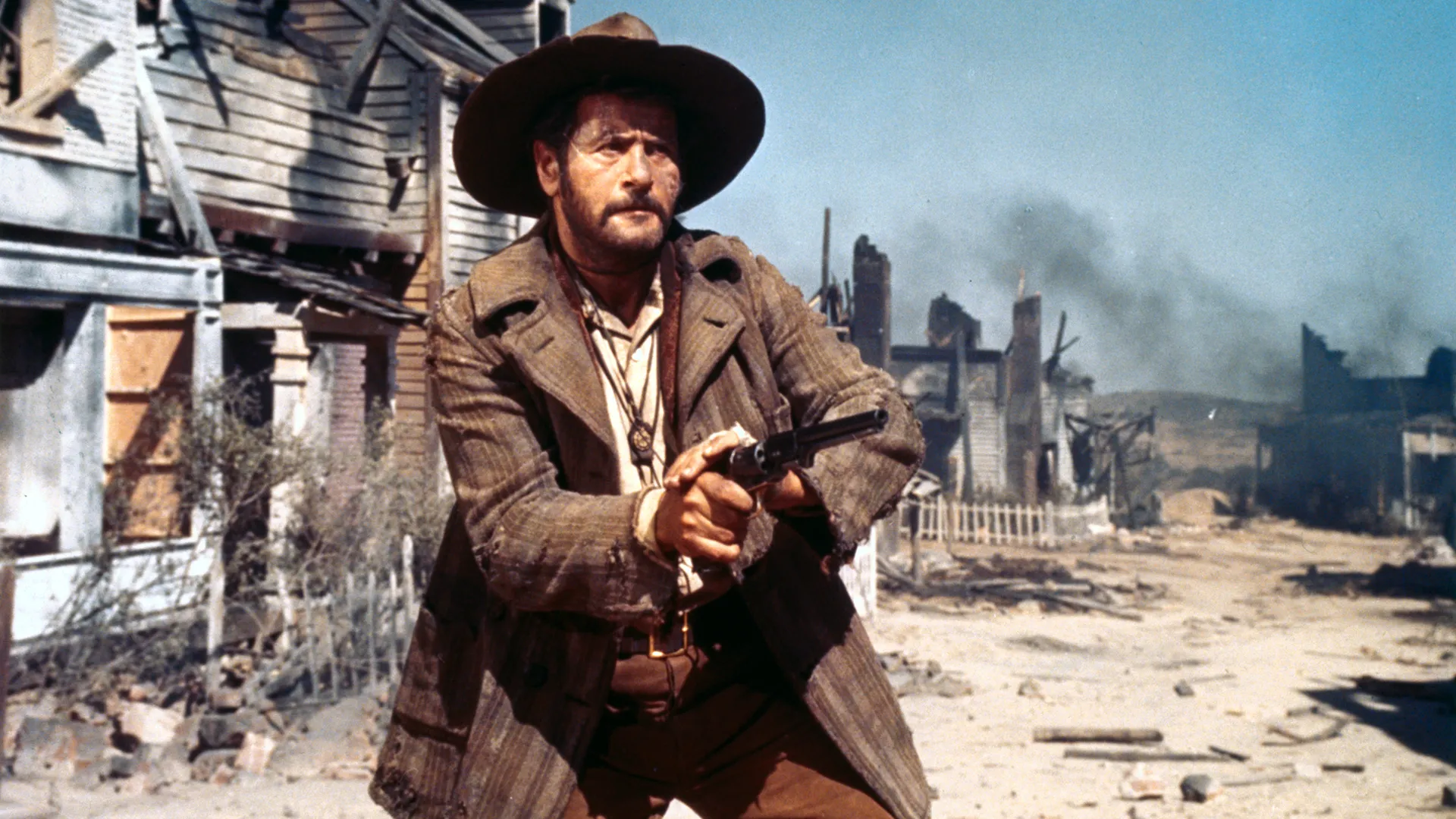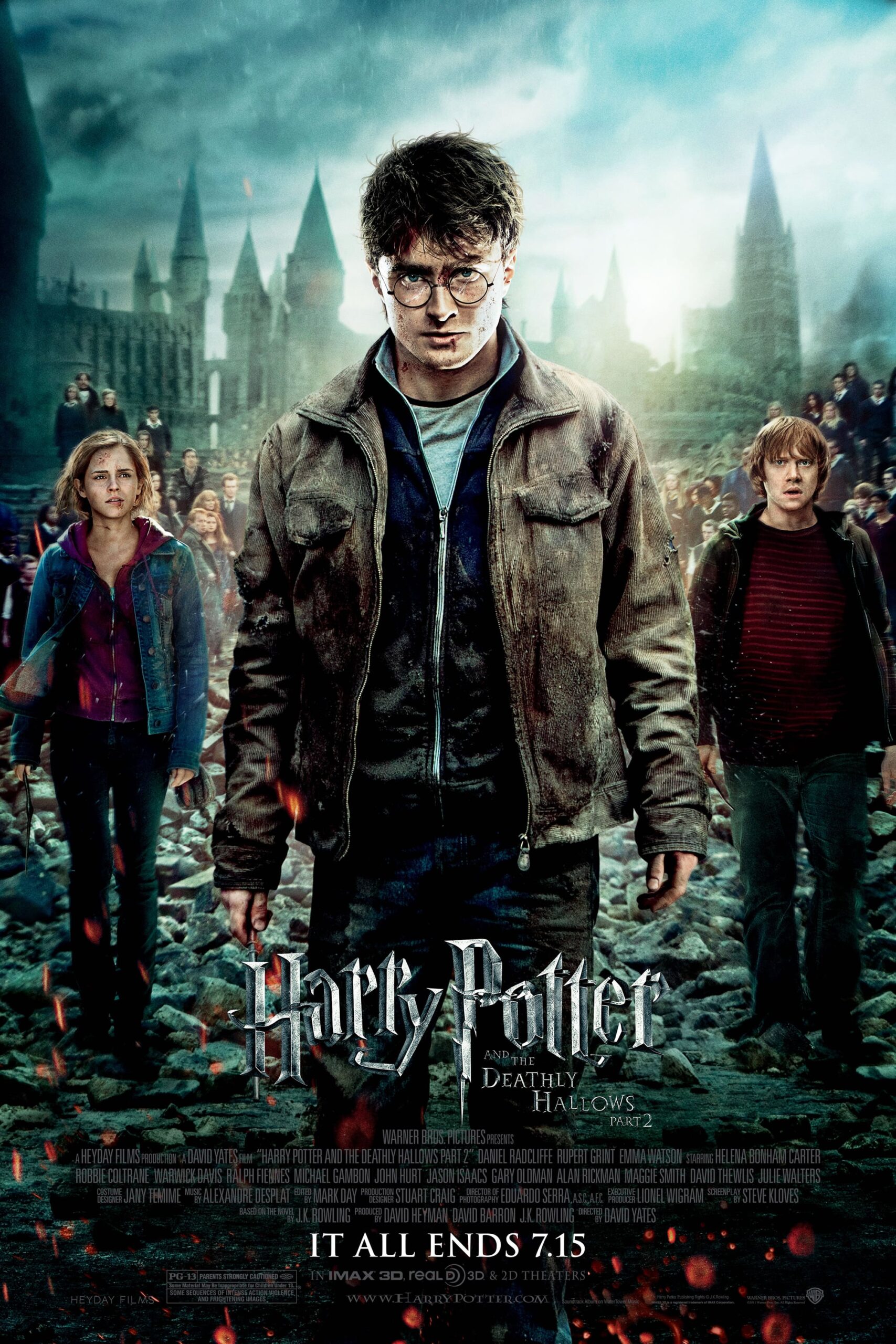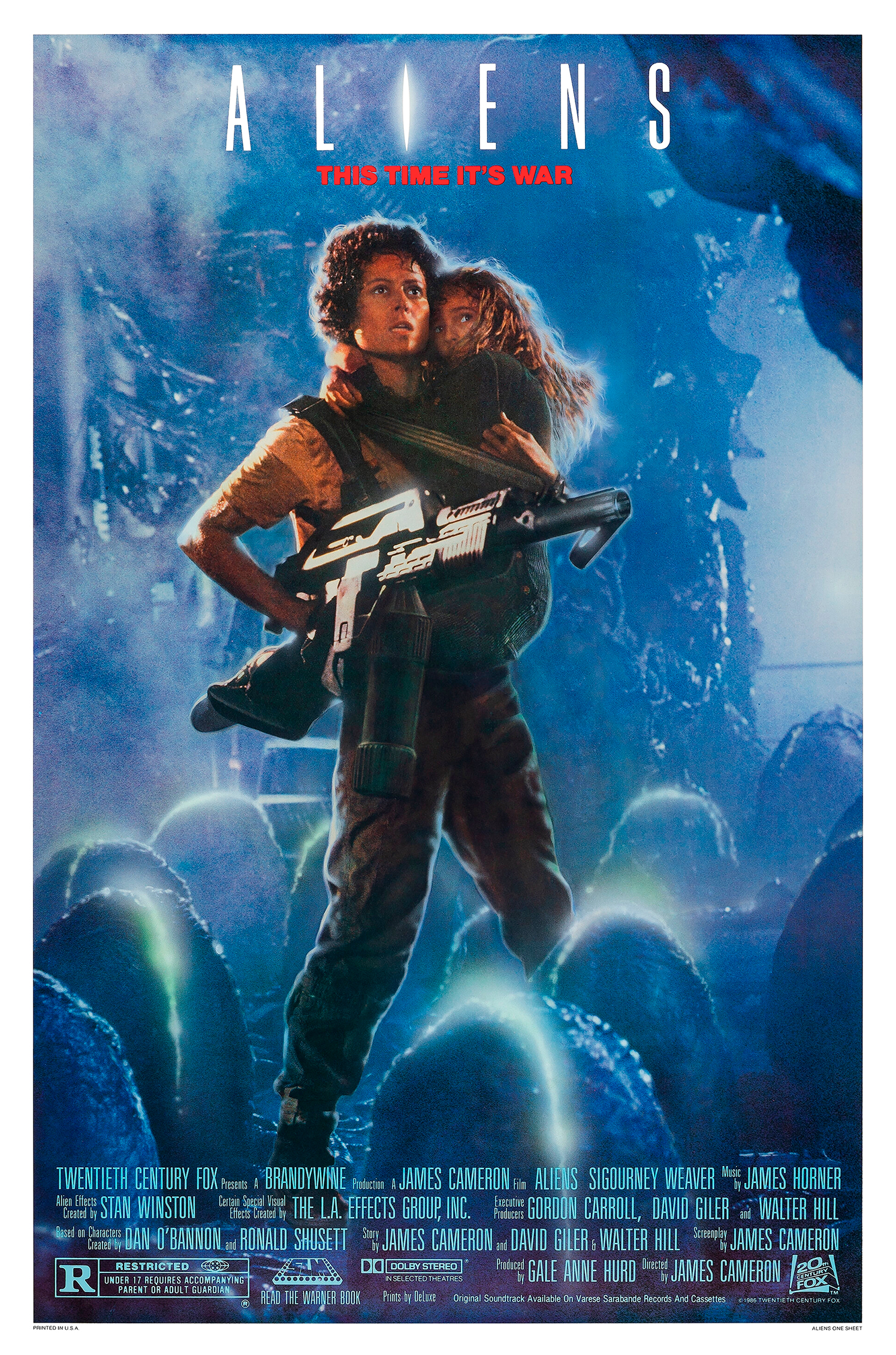
On the Waterfront (1954) – A Gritty Tale of Redemption and Corruption
Type: Movie
Country: United States
Genre: Drama, Crime
Release Date: July 28, 1954
Duration: 108 minutes
Director: Elia Kazan
Production Companies: Columbia Pictures
Cast: Marlon Brando, Eva Marie Saint, Karl Malden, Lee J. Cobb, Rod Steiger
Quick Review:
“On the Waterfront” (1954) is a compelling drama directed by Elia Kazan that explores themes of corruption, redemption, and personal integrity. Featuring an iconic performance by Marlon Brando, the film delves into the life of dockworker Terry Malloy as he grapples with the consequences of his past actions and the moral dilemmas posed by a corrupt union boss. With its powerful performances, gripping storyline, and socially relevant themes, “On the Waterfront” stands as a landmark in American cinema.
Plot Summary:
Set in the gritty world of New York City’s waterfront docks, the film follows Terry Malloy (Marlon Brando), a dockworker who is embroiled in the corruption of the local longshoremen’s union controlled by the ruthless boss, Johnny Friendly (Lee J. Cobb). Terry, who once served as a pawn in Friendly’s schemes, becomes increasingly disillusioned as he witnesses the exploitation and violence inflicted upon fellow workers.
The plot takes a pivotal turn when Terry’s brother, Charley (Rod Steiger), is murdered for his attempts to defy Friendly’s control. This tragic event propels Terry into a crisis of conscience. With the support of Edie Doyle (Eva Marie Saint), the sister of the murdered man, Terry begins to challenge the corrupt system and seek justice. His journey toward redemption is fraught with internal and external conflicts, culminating in a dramatic confrontation with Friendly and his henchmen.
Characters and Performances:
- Marlon Brando as Terry Malloy: Brando delivers a groundbreaking performance as Terry Malloy, bringing an intense and raw emotional depth to the role. His portrayal of a man torn between fear and moral courage is both powerful and poignant, earning him the Academy Award for Best Actor.
- Eva Marie Saint as Edie Doyle: Saint’s portrayal of Edie Doyle, the compassionate and strong-willed woman who supports Terry, is both tender and resilient. Her performance adds an emotional layer to the film, making Edie a central figure in Terry’s journey.
- Lee J. Cobb as Johnny Friendly: Cobb plays the menacing union boss with a commanding presence. His portrayal of Johnny Friendly captures the character’s ruthless and corrupt nature, providing a formidable antagonist for Brando’s Terry.
- Rod Steiger as Charley Malloy: Steiger’s performance as Terry’s conflicted brother adds complexity to the narrative. His role is pivotal in driving Terry’s transformation and highlighting the personal stakes of the conflict.
- Karl Malden as Father Barry: Malden’s portrayal of the local priest who supports the workers’ struggle for justice is both inspiring and morally forthright. His character provides a moral compass and a voice of reason in the film.
Direction and Cinematography:
Elia Kazan’s direction is masterful, using the gritty setting and powerful performances to create a compelling narrative about moral and social issues. Kazan’s focus on character development and realistic dialogue immerses the audience in the world of the dockworkers and their struggles.
The cinematography by Boris Kaufman enhances the film’s gritty realism. The use of stark lighting, shadowy compositions, and handheld camera work captures the rawness of the dockside environment and the emotional intensity of the story. The visual style complements the film’s dramatic tone and adds to its authenticity.
Music:
The film’s score, composed by Leonard Bernstein, features a powerful and evocative musical accompaniment that underscores the film’s dramatic moments. Bernstein’s composition enhances the emotional impact of key scenes, reinforcing the film’s themes of struggle and redemption.
Why It Endures:
“On the Waterfront” endures as a classic due to its exploration of timeless themes such as corruption, redemption, and personal integrity. The film’s realistic portrayal of working-class struggles and its critique of institutional corruption resonate with audiences across generations.
The standout performances by Marlon Brando and the supporting cast, combined with Elia Kazan’s direction, create a film that is both emotionally compelling and socially relevant. Its impact on American cinema and its influence on subsequent films in the genre solidify its place as a landmark in film history.
In Conclusion:
“On the Waterfront” (1954) is a seminal drama that combines powerful performances, a gripping storyline, and a profound exploration of social and moral issues. Directed by Elia Kazan and featuring a tour-de-force performance by Marlon Brando, the film remains a powerful and enduring testament to the human spirit and the quest for justice. Its impact on cinema and its relevance to contemporary social issues make “On the Waterfront” a must-watch classic.




